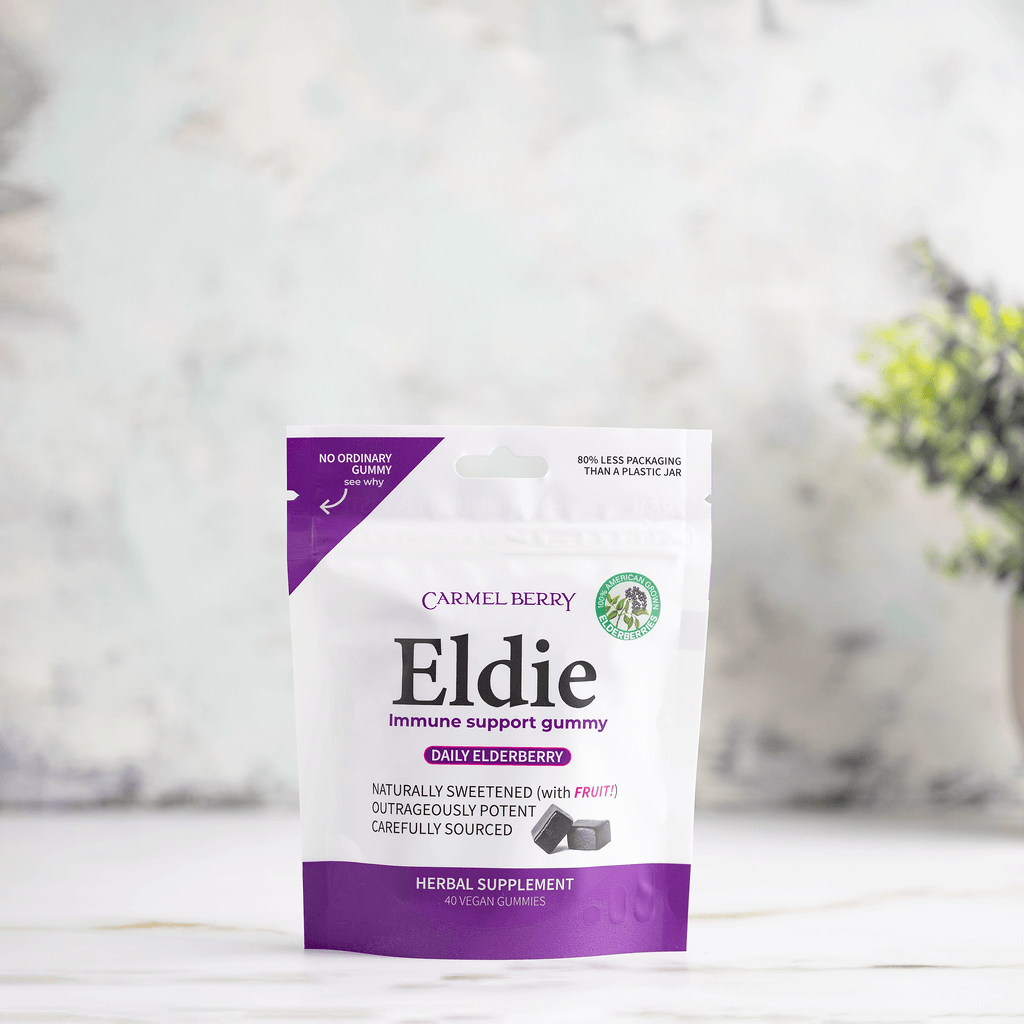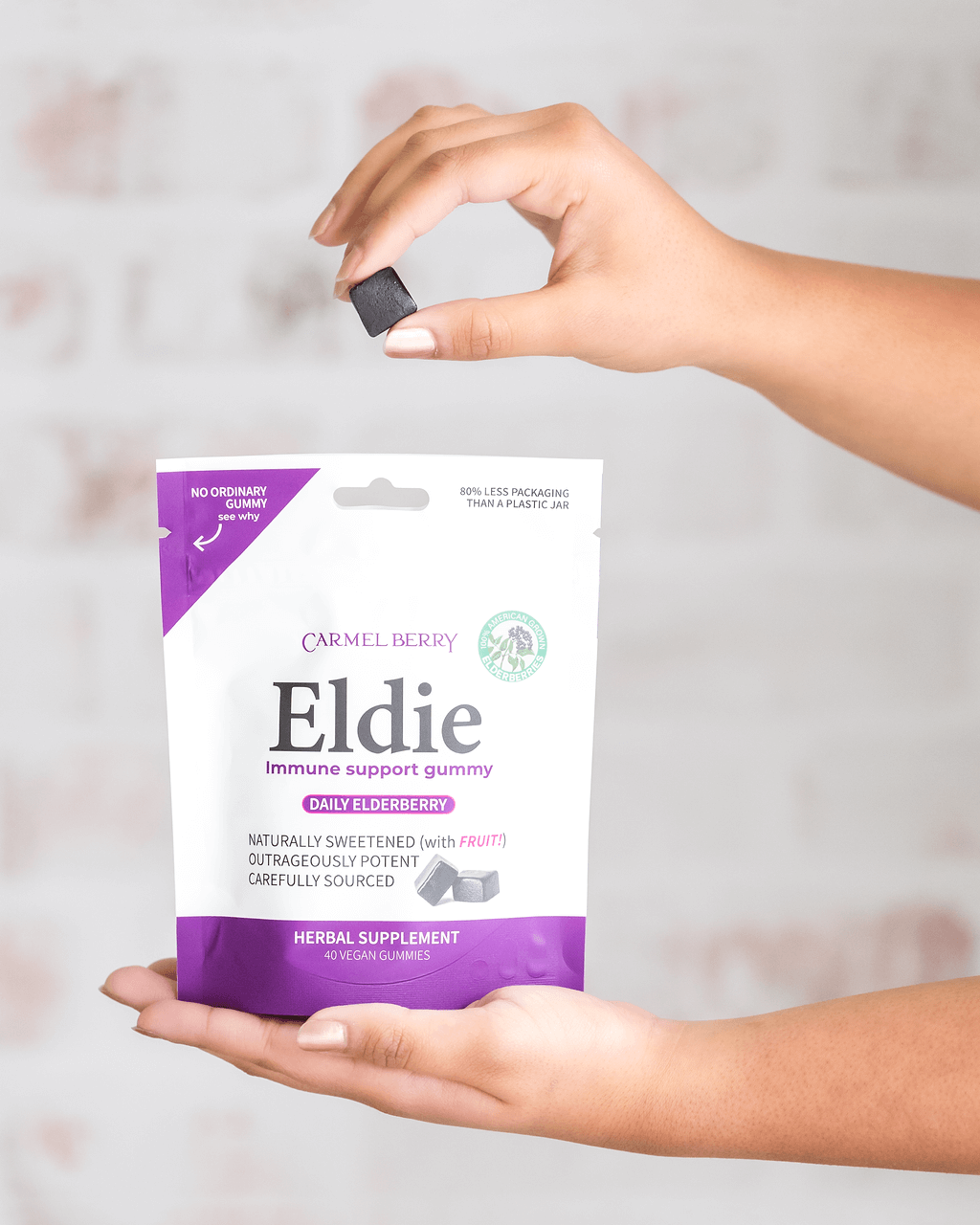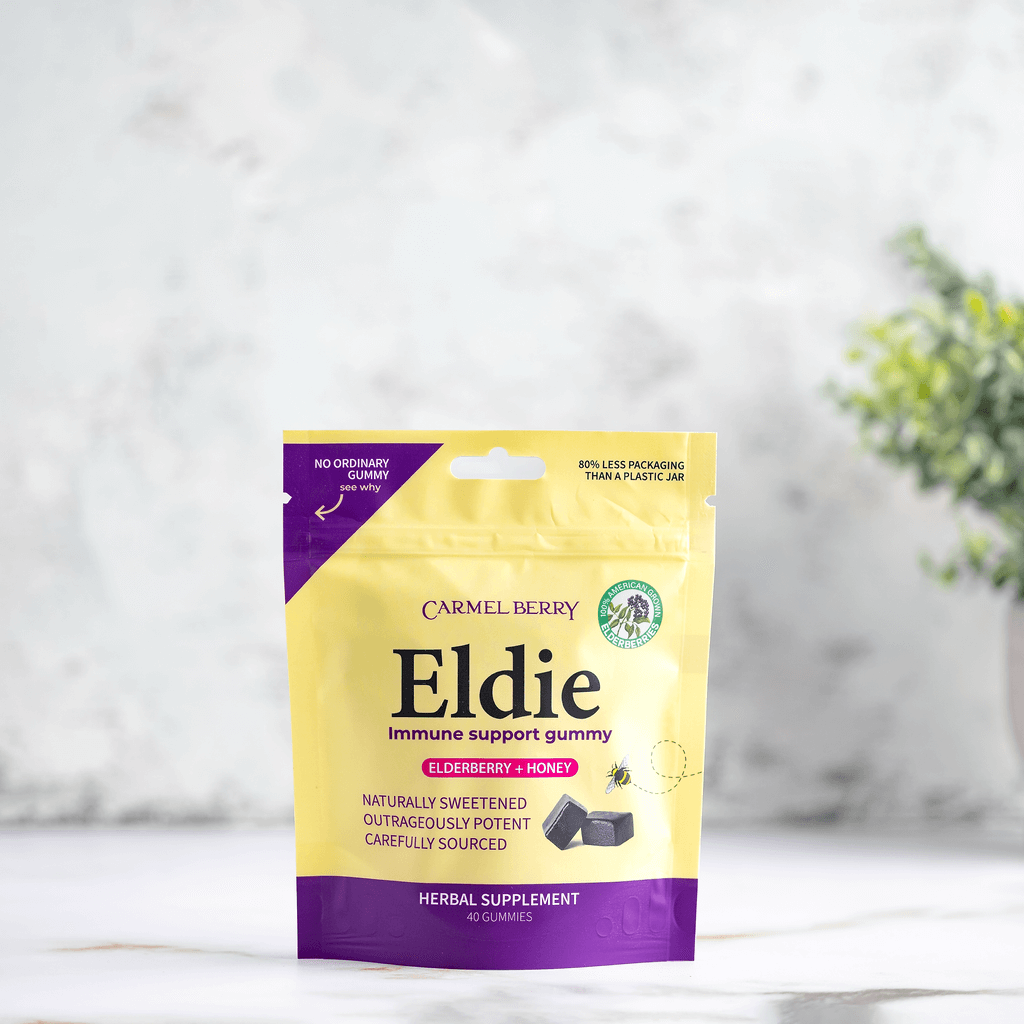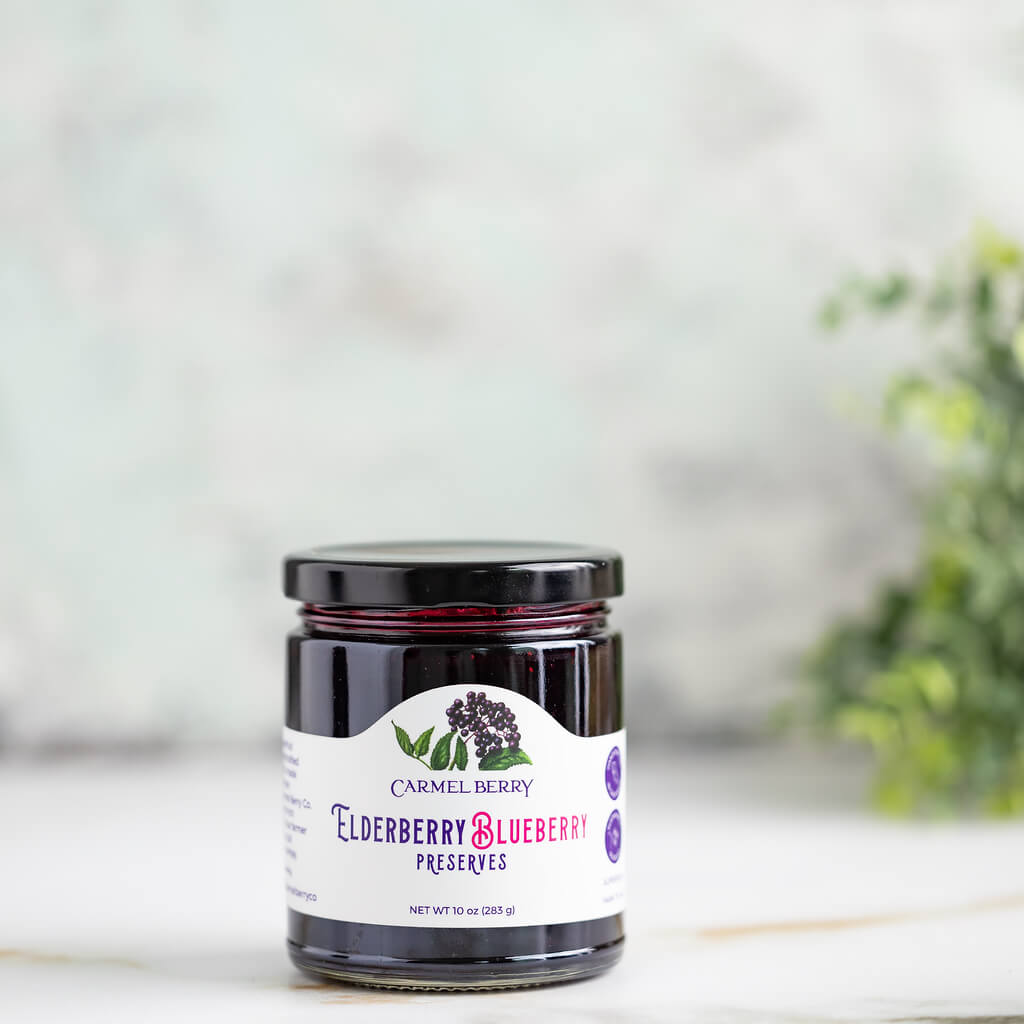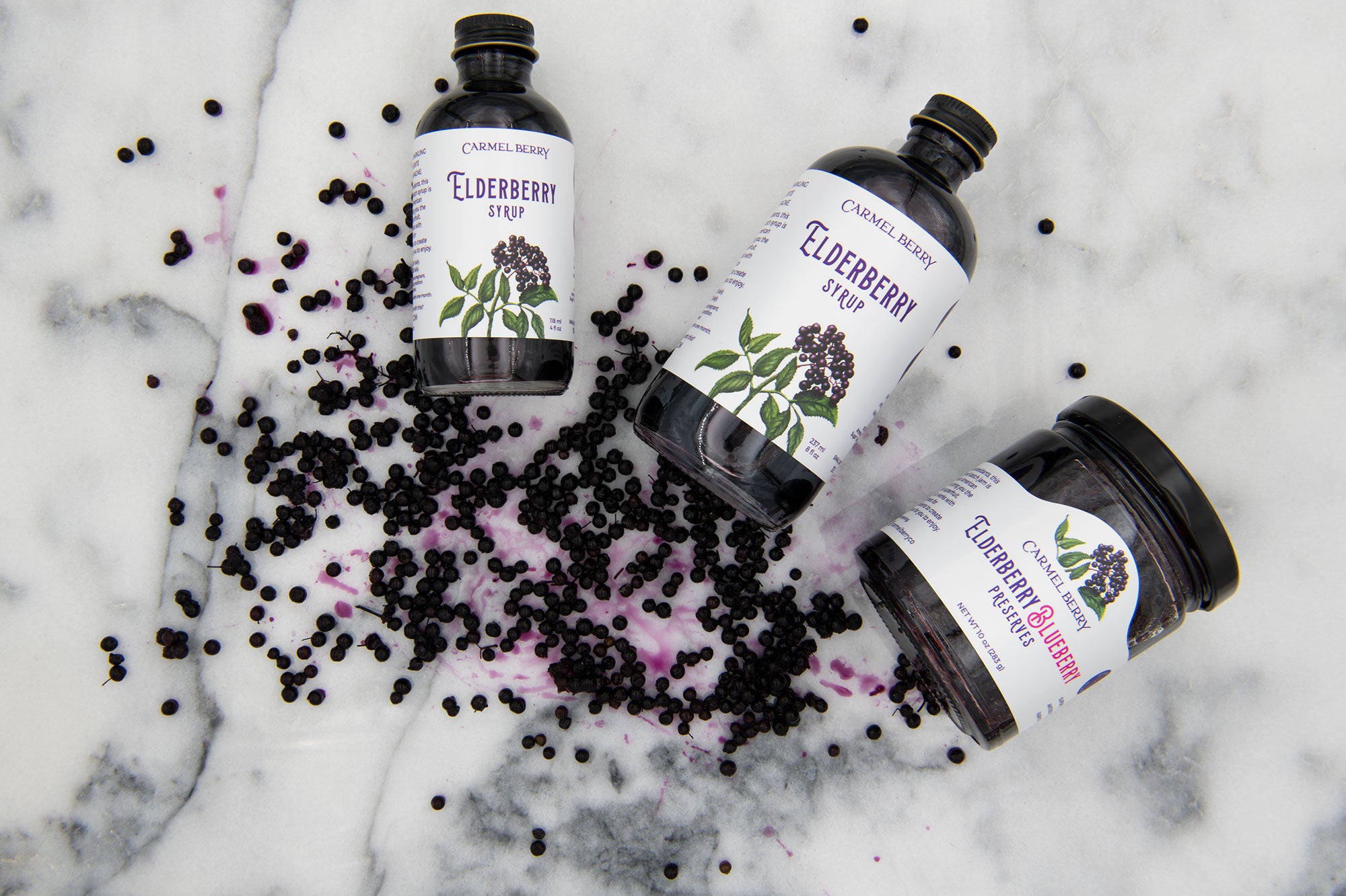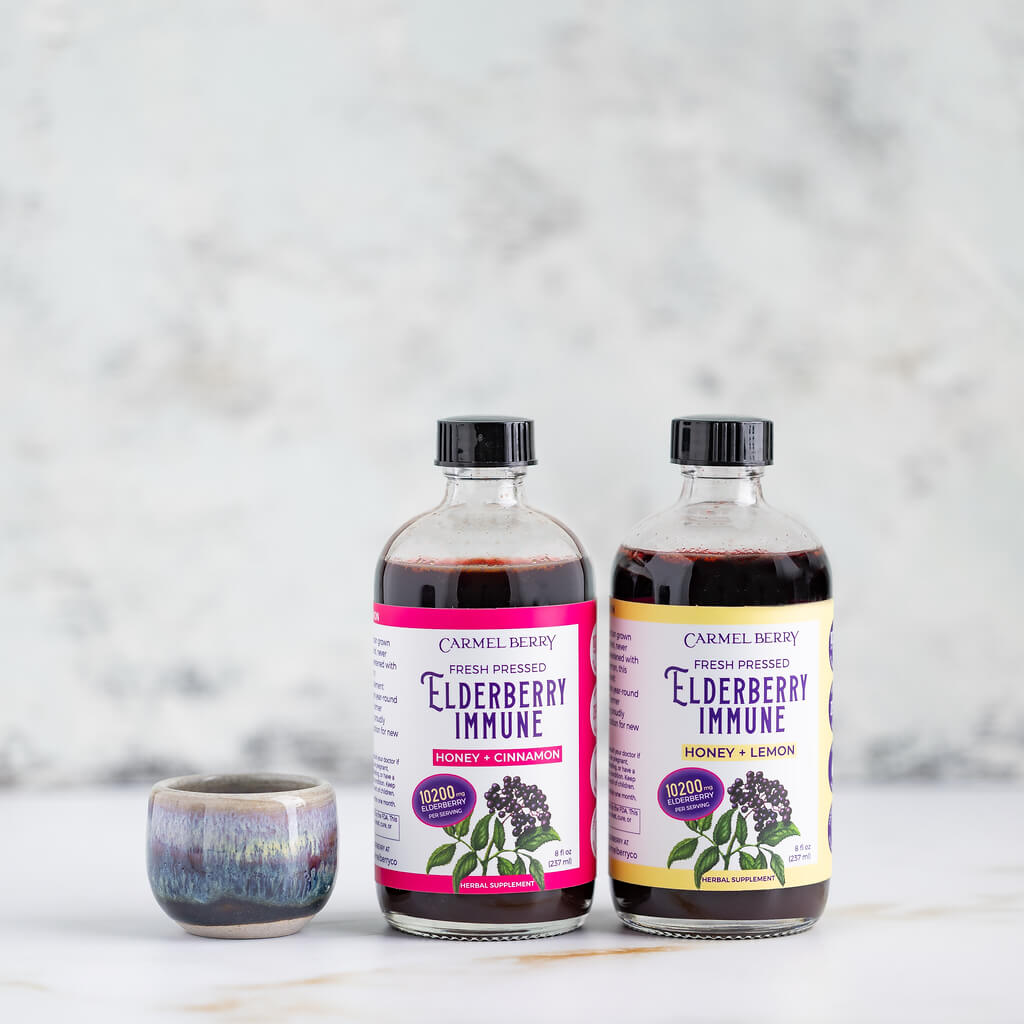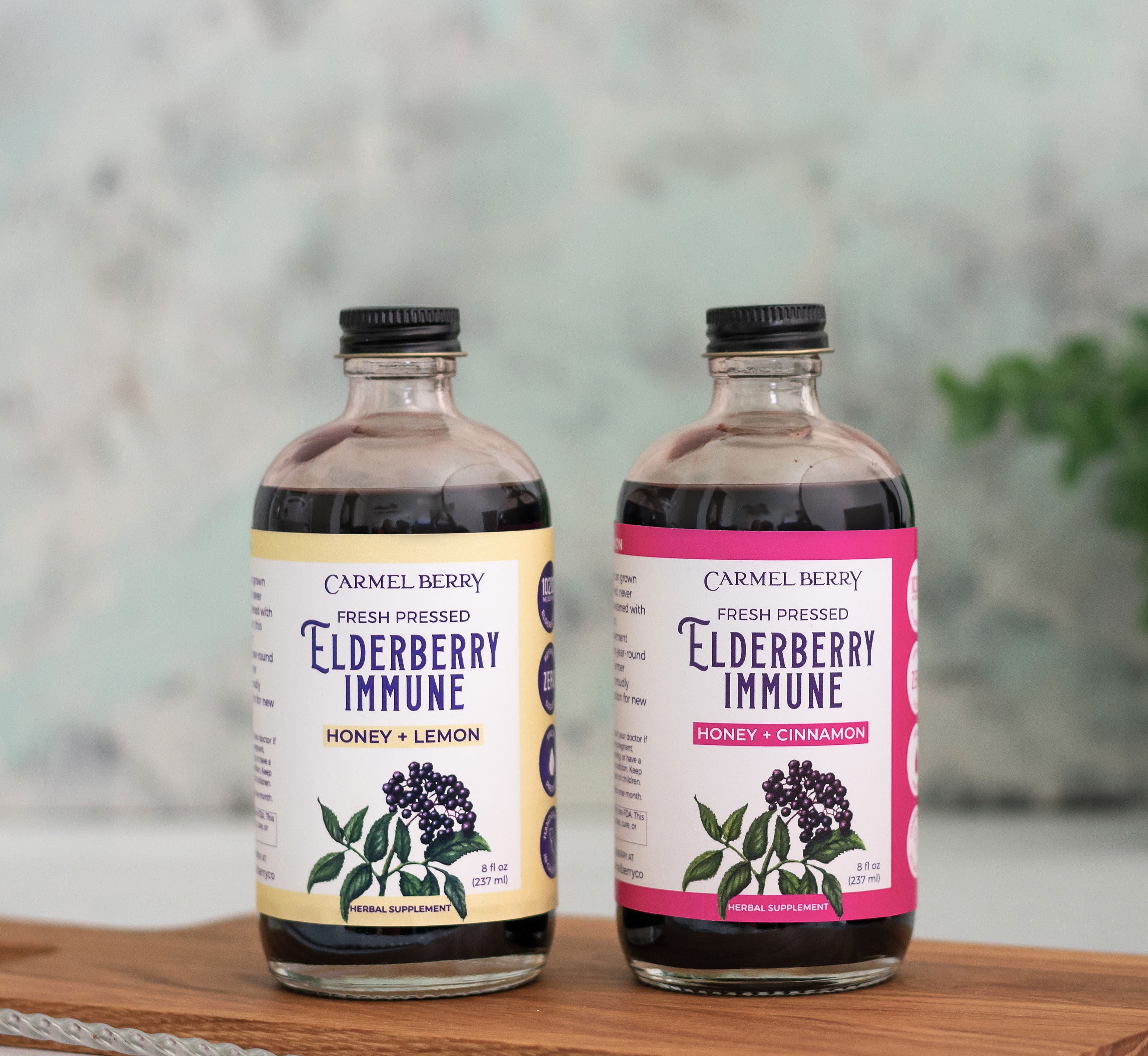Let’s get into current research on elderberries and human health.
1. Colds, flu, and other respiratory infections
A study of airline passengers showed that the symptom severity and duration of a cold may be reduced when taking an elderberry supplement (Tiralongo et al. 2016).
Using data from randomized, controlled clinical trials, a review found that elderberry could reduce symptoms from upper respiratory viral infections, providing support for the use of elderberry in supplements for treating colds and flus without the use of antibiotic medicine (Hawkins et al. 2019).
Of course, when Covid-19 came on the scene in 2020, many consumers and researchers alike wondered about elderberry and SARS-CoV-2. While research is still ongoing to better understand this virus and its impact on human health, a promising 2023 study showed that elderberry extracts had beneficial effects after an infection due to strong activity against many variants of the virus (Setz et al. 2023), and in some cases may reduce the chance that the virus can invade in the first place (Borodušķe et al. 2022). It’s important to note that these studies were in vitro (in a lab setting) rather than in human clinical trials.
2. Digestive system and the Microbiome
Another amazing way the elderberry may help your body perform at its best is through helping your gut. Not only do elderberries have fiber, but they are high in beneficial compounds called polyphenols. Berry polyphenols, which give elderberries and other dark berries their color and antioxidant nature, may alter gut microbiota (Pap et al. 2021). Some of the most powerful compounds in elderberry are the same ones for the beautiful red-purple hue of the fruit: anthocyanins. Anthocyanins are a class of phenolic compounds, which broadly together can have a wide range of bioactivities. This includes helping your gut function better and have a more balanced microbiome (Oteiza et al. 2023).
3. Anticancer Properties
Moving onto another impressive health-promoting property of elderberry, here we have some interesting research showing the impact of elderberry extracts on cancer.
In one in vitro study of American Elderberry, elderberry had chemo-preventative activity by slowing down the progress of certain necessary steps that allow the cancer to spread (Thole et al. 2006).
The type of anthocyanins (the dark purple pigments) present in elderberry have been reviewed for their ability to suppress cancer, such as inhibiting proliferation and reducing drug resistance of cancer cells while simultaneously increasing their susceptibility to chemotherapy treatment (Posadino et al. 2023).
4. Cardiovascular and Brain Health
Your heart is one of your most important organs, so it’s great when you can give it some extra love! One way elderberry may support your heart health is by naturally reducing blood pressure as shown in a study with rats (Ciocoiu et al. 2016).
Remember those anthocyanins we talked about in the last section? Well they are back with more ways to help your health! Anthocyanins have a unique structure that make them particularly good antioxidants. Anthocyanins have shown to reduce lipid oxidation and lipoprotein (like LDL and HDL oxidation) by slowing the spread of free radicals (Ferreira Reis et al. 2016). Our body aims to combat levels of oxidative stress to keep all our systems, especially our cardiovascular system, working at their best.
Of course in addition to supporting your heart health, you want to support your brain health too! A study compared the impacts of elderberry extract on neuronal recovery after stroke-induced brain injury, in which the results showed that mice fed elderberry extract were significantly better at repairing damage and alleviating oxidative and inflammatory stress (Chuang et al. 2014).
5. Diabetes
Let’s wrap up with one last important way that elderberry may help you and your family on your health journeys. A paper evaluating extracts in rats fed a high fat diet has shown that elderberry extracts could change how glucose is used while also reducing insulin resistance (Salvador et al. 2017) (Ciocoiu et al. 2012). The authors suggested that the elderberry extracts could be a helpful tool alongside other diabetes medication.
In Summary
Modern scientific research shows great promise in this tiny but mighty fruit in multiple aspects of human health, from heart to brain to immune function. Further research projects are underway internationally, with a 2025 International Elderberry Research Symposium already scheduled for researchers across the globe to convene and share current findings. Stay tuned for more data driven elderberry findings.
How to safely consume elderberry
Parts of the elderberry plant are known to contain cyanogenic glycosides, which when consumed, can become cyanide in the body. Stems, leaves, and unripe berries can contain high levels of these compounds, so only ripe berries or flowers should be consumed.**
* Carmel Berry Company Disclaimer: This webpage provides general information and discussions about health and related subjects. The information and other content provided in this post, the Carmel Berry website, or in any linked materials are not intended and should not be considered, or used as a substitute for, medical advice, diagnosis, or treatment.
**Note from Carmel Berry Company on the safety of consuming elderberry: Heat treatment at certain levels destroys the cyanogenic glycosides, meaning all of the elderberry products at Carmel Berry Co are safe. While the quality and safety of our products is our utmost priority, we recommend discussing with your doctor before consuming if you have medical conditions, take any medications, are pregnant, or are breastfeeding.
References - in order of appearance in article:
- Tiralongo et al. 2016
- Hawkins et al. 2019
- Setz et al. 2023
- Borodušķe et al. 2022
- Pap et al. 2021
- Oteiza et al. 2023
- Thole et al. 2006
- Posadino et al. 2023
- Ciocoiu et al. 2016
- Ferreira Reis et al. 2016
- Chuang et al. 2014
- Salvador et al. 2017
- Ciocoiu et al. 2012
